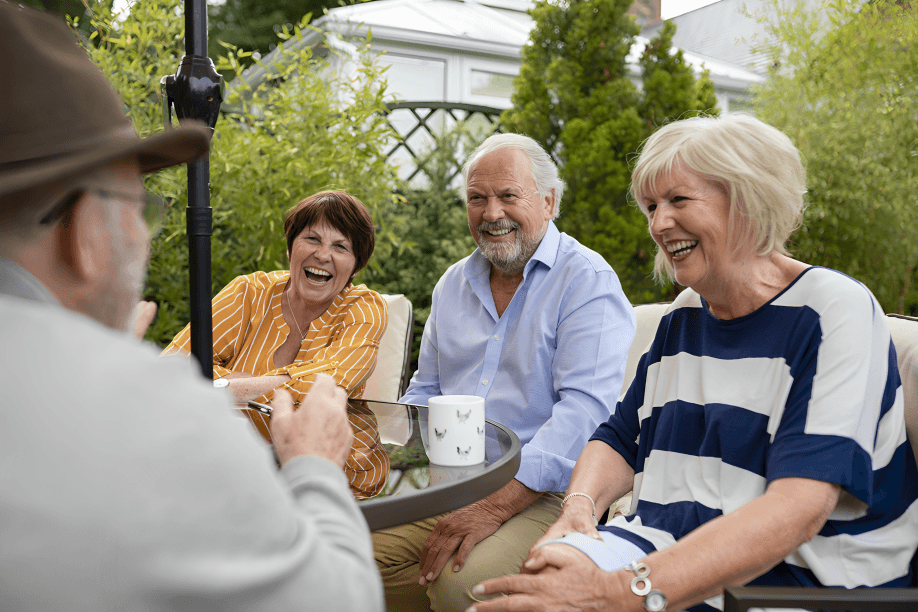
“
The importance of social connections for longevity has been highlighted by countless studies in psychology, medicine, and sociology. Whether through family, friendships, or community involvement, feeling connected gives life greater meaning and contributes significantly to overall well-being.1
1
”
People with strong social bonds are 50% more likely to live longer than those without them, as their emotional resilience positively influences stress responses, mental health, and even cellular aging. 1
Loneliness triggers increased cortisol levels in the body, which over time raises blood pressure and suppresses immunity, contributing to heart disease and early death in socially disconnected individuals. 2
Harvard’s 85-year-long study on adult development found that good relationships—not wealth or fame—are the strongest predictor of health and happiness in later life. 3

Emotional support from friends and family during illness has been shown to significantly improve recovery times and increase survival rates in patients with chronic diseases and post-surgical care.
Socially active elderly individuals maintain better memory function and reduced risk of dementia due to increased mental engagement through conversation and shared activities. 4
Participating in community volunteer work can add years to life by providing a sense of purpose, building empathy, and promoting brain health through social learning and cognitive engagement. 5
A sense of belonging has been linked to the release of oxytocin, often called the “love hormone,” which promotes emotional bonding and protects the heart from stress-induced damage. 6
Children raised in nurturing, socially connected environments tend to develop better emotional regulation, higher self-esteem, and stronger immune systems throughout their lives, benefiting long-term health. 7
People who maintain friendships and meaningful contact through midlife are less likely to suffer from depression, anxiety, or feelings of meaninglessness in their senior years. 8

Social engagement promotes the production of neurotrophic factors, which enhance brain plasticity, allowing the mind to adapt and resist cognitive decline even during old age.
Close relationships reduce the likelihood of risky behaviors such as substance abuse or poor diet, as accountability and emotional investment in others lead to more responsible lifestyle choices. 9
Group activities like walking clubs, book groups, or religious gatherings provide emotional support, physical engagement, and intellectual stimulation—combining key ingredients for a longer, healthier life. 10
People with healthy social lives sleep better, as emotional comfort and reduced anxiety allow deeper, more restorative rest, which is vital for heart health, memory, and immune function. 11
Elderly individuals who live in social housing or shared communities report higher levels of life satisfaction and lower incidences of depression, which contributes directly to increased longevity. 12
Even digital social interaction—when used meaningfully—can reduce feelings of isolation in older adults, offering cognitive stimulation and emotional contact when physical meetings are limited. 13

Culturally, societies that value extended family and communal living, such as in Okinawa or Sardinia, have among the world’s highest concentrations of centenarians—linked to lifelong social integration.
Supportive social networks improve medical compliance, as individuals with caring friends or partners are more likely to follow treatment plans and attend regular health check-ups. 14
Resilient people often owe their strength to social support, which allows them to recover from trauma, grief, or major setbacks more quickly than those facing hardship alone. 15
Individuals who feel connected have a stronger sense of purpose and meaning in life, which in turn encourages goal-setting, positive habits, and greater overall motivation to stay healthy. 16
Renowned psychiatrist Viktor Frankl argued that meaning in life—often derived from love and relationships—was crucial to surviving hardship, suggesting that emotional ties may indeed help preserve life itself. 17


